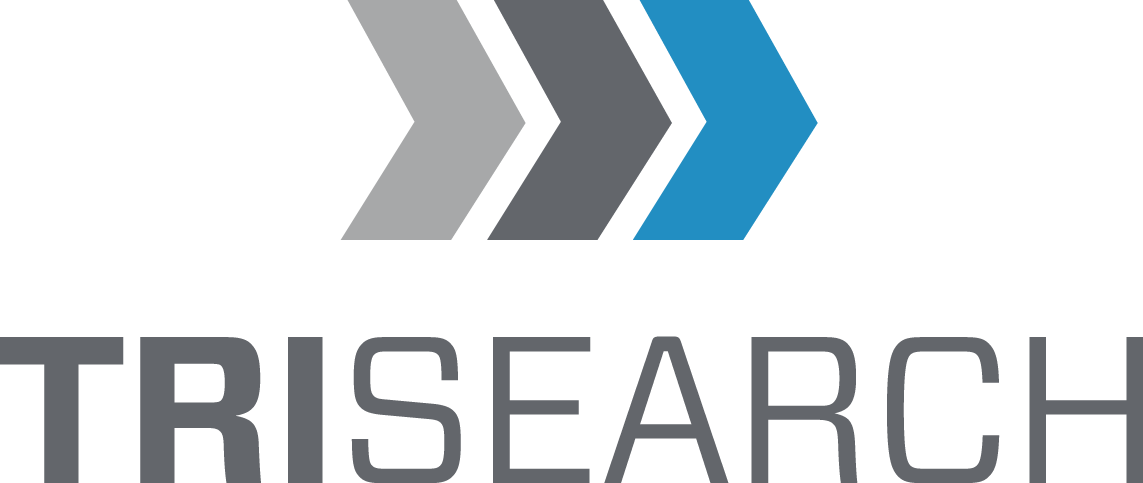CRO Recruitment Strategies: Elevate Your Hiring Process and Find the Right Fit

In today's competitive business landscape, hiring the right Chief Revenue Officer (CRO) is crucial for driving growth and maximizing revenue potential. This comprehensive guide explores effective strategies for CRO recruitment, from understanding the role to finalizing the hire.
- A thorough understanding of the CRO role is essential for successful recruitment.
- Preparation and a diverse hiring committee improve the selection process.
- Leveraging technology and data-driven methods enhances candidate evaluation.
- In-depth interviews and background checks are crucial for assessing candidates.
- Clear expectations and a structured onboarding process set the stage for CRO success.
Understanding the CRO Role
Defining the responsibilities of a Chief Revenue Officer
The Chief Revenue Officer (CRO) plays a pivotal role in driving an organization's revenue growth across marketing, sales, and customer success functions. This executive position requires a strategic mindset combined with operational expertise to maximize revenue through various channels [1] .
Key responsibilities of a CRO include:
- Developing comprehensive revenue strategies
- Analyzing market trends and customer behavior
- Optimizing pricing strategies
- Aligning revenue goals with company objectives
- Implementing sales technologies
- Fostering cross-functional collaboration
Key competencies and skills required for success
Successful CROs possess a unique blend of skills that enable them to navigate complex business environments and drive revenue growth. At TriSearch, we've identified several critical competencies that set top-performing CROs apart:
- Financial acumen and revenue modeling expertise
- Strong leadership and team-building abilities
- Data literacy and analytical thinking
- Strategic planning and execution skills
- Excellent communication and stakeholder management
- Technical proficiency with CRM and revenue operations platforms
- Industry knowledge and competitive intelligence
Aligning the CRO position with company goals
Effective CRO recruitment begins with a clear understanding of how the role aligns with your organization's objectives. This alignment ensures that the CRO can contribute meaningfully to both short-term wins and long-term strategic initiatives [2] .
Consider the following when aligning the CRO position:
- Current revenue challenges and market position
- Specific growth stages (e.g., entering new markets, scaling operations)
- Short-term and long-term strategic priorities
- Performance metrics and compensation structures
Preparing for the CRO Hiring Process
Conducting a thorough needs assessment
Before initiating the CRO recruitment process, it's crucial to conduct a comprehensive needs assessment. This evaluation helps identify critical gaps and priorities within your revenue organization, ensuring that you target candidates with the right skills and experience to address your specific challenges.
Key elements of a thorough needs assessment include:
- Analyzing current revenue performance across all channels
- Mapping existing team capabilities against future growth targets
- Evaluating organizational structure and reporting relationships
- Identifying technology stack limitations and process inefficiencies
- Gathering stakeholder input on cross-functional collaboration challenges
Developing a comprehensive job description
A well-crafted CRO job description is essential for attracting top talent and setting clear expectations for the role. At TriSearch, we recommend creating a description that balances strategic vision with tactical execution requirements [3] .
Key components of an effective CRO job description:
- Clear narrative about the revenue transformation opportunity
- Defined scope of authority and specific revenue targets
- Required and preferred qualifications
- Examples of key initiatives for the first year
- Reporting relationships and team structure
- Technology proficiency requirements
Establishing a diverse hiring committee
A diverse hiring committee brings multiple perspectives to the CRO candidate evaluation process, reducing individual bias and improving decision quality. This approach also demonstrates your organization's commitment to inclusive leadership.
Tips for establishing an effective hiring committee:
- Include leaders from marketing, sales, customer success, and finance
- Incorporate both senior executives and mid-level managers
- Add board members or advisors with CRO hiring experience
- Assign specific evaluation areas based on committee members' expertise
- Train the committee on structured interviewing techniques
CRO Recruitment Strategies: Elevate Your Hiring Process
Leveraging executive search firms and networks
Partnering with experienced executive search firms can significantly enhance your CRO recruitment efforts [4] . At TriSearch, our Targeted Single Search (TSS) service offers specialized expertise and extensive networks crucial for identifying top CRO talent.
Benefits of leveraging executive search firms:
- Access to passive candidates and proven revenue leaders
- Market intelligence on compensation trends and skill availability
- Confidential outreach to high-caliber executives
- Expertise in assessing candidates for specific industries or transformation roles
Implementing data-driven candidate evaluation methods
Data-driven evaluation methods bring objectivity and consistency to the CRO hiring process. By quantifying key competencies and using structured assessment tools, you can identify candidates most likely to deliver measurable revenue impact [5] .
Effective data-driven evaluation techniques include:
- Creating scorecards for quantifying key competencies
- Using structured assessment tools for technical skills evaluation
- Implementing standardized rubrics for behavioral interviews
- Tracking correlations between assessment scores and candidate performance
Utilizing AI and technology in the recruitment process
Artificial intelligence and machine learning tools can streamline the CRO candidate screening and evaluation process. These technologies help remove unconscious bias and provide valuable insights into candidate potential [6] .
AI-powered recruitment tools can assist with:
- Resume and profile analysis using natural language processing
- Predictive analytics for assessing candidate success potential
- Video interview analysis for communication style and leadership presence
- Automated reference checking and feedback gathering
Assessing CRO Candidates
Conducting in-depth interviews and case studies
Structured interviews and case studies provide valuable insights into how CRO candidates approach revenue challenges and strategic decision-making. Design role-specific scenarios that test their ability to analyze market opportunities, develop pricing strategies, and optimize revenue operations.
Key elements of effective CRO assessments include:
- Presenting candidates with actual company data for strategy development
- Including collaborative exercises to evaluate leadership approach
- Conducting technical assessments on revenue modeling and go-to-market planning
- Using behavioral interviews focused on past revenue transformation examples
Evaluating cultural fit and leadership potential
Assessing cultural fit and leadership potential is crucial for ensuring long-term success in the CRO role. Create scenarios that test candidates' ability to navigate company values while driving revenue transformation.
Focus areas for evaluating cultural fit and leadership potential:
- Strategic thinking capacity
- Emotional intelligence
- Adaptability to change
- Talent development track record
- Stakeholder management abilities
Performing thorough background checks and reference validations
Comprehensive background checks and reference validations are essential for verifying CRO candidates' track records and leadership capabilities. This process helps ensure that you're making an informed hiring decision based on accurate information.
Key elements of thorough background checks and reference validations:
- Employment verification focusing on actual revenue role results
- Criminal, financial, and educational background checks
- Structured reference interviews with diverse stakeholders
- Verification of key metrics and achievements
- Social media presence and industry reputation assessment
Finalizing the CRO Hire
Negotiating compensation and benefits packages
Structuring an attractive compensation package is crucial for securing top CRO talent. Align incentives with company growth objectives while remaining competitive within the industry.
Consider the following when designing CRO compensation packages:
- Benchmarking total compensation against industry standards
- Structuring packages with base salary, performance bonuses, and equity components
- Designing short-term and long-term incentives tied to specific revenue metrics
- Including competitive benefits and leadership development opportunities
Designing an effective onboarding process
A well-structured onboarding process accelerates CRO impact and reduces early missteps. Create a comprehensive plan that familiarizes the new CRO with your organization's revenue operations, key stakeholders, and strategic priorities.
Key components of an effective CRO onboarding process:
- Developing a 30-60-90 day plan with clear milestones
- Scheduling intensive sessions with marketing, sales, and customer success leaders
- Providing immediate access to revenue systems and historical performance data
- Arranging customer meetings across segments
- Setting up regular check-ins with the CEO and board
Setting clear expectations and performance metrics
Establishing clear performance metrics and expectations creates accountability while empowering CROs to drive measurable revenue impact. Define specific targets and key performance indicators that align with your organization's growth objectives.
Important considerations for setting CRO performance metrics:
- Defining specific revenue targets across new business, expansion, and retention channels
- Establishing KPIs for pipeline health, sales efficiency, and customer acquisition costs
- Creating dashboards to track leading indicators and revenue trajectory
- Setting expectations for cross-functional collaboration and strategic initiatives
Conclusion
In conclusion, recruiting the right Chief Revenue Officer is a critical process that requires careful planning, thorough evaluation, and strategic decision-making. By implementing these comprehensive strategies, you can elevate your hiring process and find the ideal CRO to drive your organization's revenue growth. If you're looking for expert guidance in your executive search process, Contact Us at TriSearch. Our team of experienced recruiters can help you navigate the complexities of CRO recruitment and find the perfect fit for your organization.
- Deloitte. (2021). "The evolving role of the chief revenue officer in the digital age."
- Harvard Business Review. (2020). "The Chief Revenue Officer: A New Leader for New Revenue Challenges."
- Society for Human Resource Management. (2022). "Creating Effective Job Descriptions for Executive Roles."
- Recruit CRM. (2021). "Executive Search Guide."
- AESC. (2020). "Executive Search Process: What to Expect."
- The Economist. (2016). "Headhunters and How to Use Them."

